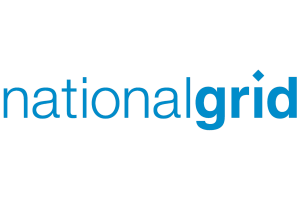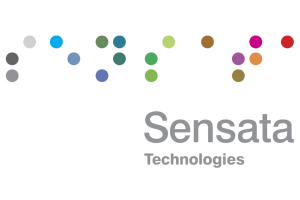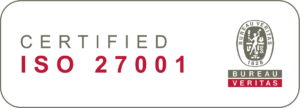Engage Candidates Smarter with Text Recruiting Software
Text recruiting is on the rise! Get your prospective candidates’ immediate attention and reach them wherever they are with Rakuna’s Text Recruiting Software.

Our Customers
Hundreds of recruiting teams around the world are using Rakuna platform to scale recruiting

















Accelerate The Hiring Process
Send mass text messages in seconds, grow engagement rates exponentially, and make more placements – all with less manual work and in less time.


Foster Human Connection
Build relationships and keep your candidates engaged from their very first touchpoint to the end of the recruiting process. Customize your campaigns and set yourself apart by providing the human touch to every message you send!
Leverage Text Recruitment Data To Boost Performances

Empower Your Recruiters With Powerful SMS Features
GENERATE BULK TEXT MESSAGES:
Sending and tracking bulk SMS campaigns has never been simpler! Customize your template to conduct mass personalized messages!
SEND 1-1 TEXT MESSAGES:
Send personalized 1-1 text messages to candidates through Rakuna’s web-based platform. Create, customize, and save multiple templates for easy access.
AUTOMATE SMS CAMPAIGN:
Put the hassle of menial tasks out of the equation! Actively engage with candidates through automated mass and targeted messaging campaigns.
OPTIMIZE TWO-WAY SMS CHAT:
Maximize back-and-forth communication with candidates and deliver quick responses to urgent questions. Rakuna will save and keep track of all interactions for seamless follow-up by other recruiters.
INTEGRATE WITH EVENT MANAGEMENT AND INTERVIEW SCHEDULING:
Extend the reach of your text recruiting campaign by scheduling and automatically sending SMS messages to candidates post-events and post-interviews.
MAXIMIZE CRM RESULTS:
Track your text recruitment data through auto-generated reports to best measure your text recruitment campaigns. Download crucial analytics to your phone or tablet with Rakuna Text Recruiting.
Questions about Text Recruiting Software?
Can I have multiple numbers? Can I use my personal numbers?
Yes, you can do both. Multiple and preferred numbers are supported as long as they are new and unregistered.
Is there a character limit for my SMS messages?
Yes. The limit for 1 SMS credit is 160 characters. This includes normal text and emojis.
Can I attach multimedia materials to my SMS messages?
Yes. At the moment, Rakuna Text Recruiting Software users can insert emojis and attach links under specific texts.
Can I limit who has access to which number?
Yes. Different users can be assigned with separate ‘sent from’ numbers in the system.
Can I send or schedule text messages from my PC?
Yes. You can directly send and instantly receive SMS messages within the Dashboard without using any phone devices. You can choose “Send now” or “Schedule” to send your text later.
Do I need my phone to use this product?
No. You can send and receive SMS messages right on Rakuna Dashboard where all candidate profiles are managed.
Are brand customization options available?
As far as customization that SMS text messages allow, “sent-from” numbers can be set to display your organization’s name to your recipients.
Does Rakuna Text Recruiting Software allow ATS integration? If yes, which ATS are supported?
Rakuna works with all major Applicant Tracking Systems. For example:
– Workday
– SAP SuccessFactors
– Greenhouse
– iCIMS
– Lever
Additionally, we can integrate with any ATS as long as it allows data to be securely pushed/pulled via APIs. Learn more here: https://rak.sialthuong.com/ats_integration/
How easy is integration with other software modules?
Rakuna Platform is API-driven. That means the product has been built from day 1 to be integrative – users can plug it into other systems.
Does Rakuna support SSO authentication?
Yes. Rakuna supports SSO authentication such as Azure Active Directory and Google SSO. Set-up & maintenance costs may be applied and vary depending on the company’s requirements and SSO policy.
Knowledge Snippet - Common Use Cases
 Knowing The Rules
Knowing The Rules
An Organization recruiting through text messages is considered a commercial SMS Act. This classification means that your company’s SMS activities will be subjected to various SMS laws in the region your team is operating.
Some of the most common sets of regulations your organization is likely to encounter are The Telephone Consumer Protection Act (TCPA) for the US, Canada’s Anti-Spam Legislation, and finally, The General Data Protection Regulation (GDPR) for EU countries.
Each set of laws presents unique requirements and benefits for organizations that operate under it. For example, for the US’s TCPA, a given consent is still viable even if the candidate changes from using a landline to a mobile device or a wireless number.
In Canada’s Anti-Spam Legislation, another form of consent is possible – implied consent. This is when a candidate has an existing business relationship with your business (like having sent an inquiry), then you can send them recruitment messages under implied consent.
However, please note a shared requirement among all three regulations- You can only send SMS when the candidates have expressly provided their consent.
 The Cost Of Rule Violation
The Cost Of Rule Violation
Unable to prove that you are allowed to conduct text communication by the receiver can land you a $500 fine for a violation and up to $1500 per case if you consciously did it.
Another detrimental effect of not following your local commercial messaging laws is losing the trust of your candidates and partners.
These regulations are there to protect users from spam messages and fraudulent activities. So if your team committed a violation, candidates could easily interpret that you do not have their best interests in mind.
Understandably, any recruitment team would be eager to reach as many candidates as possible. However, your texts can always be marked as spam and disruptive if they are not planned and executed carefully.

